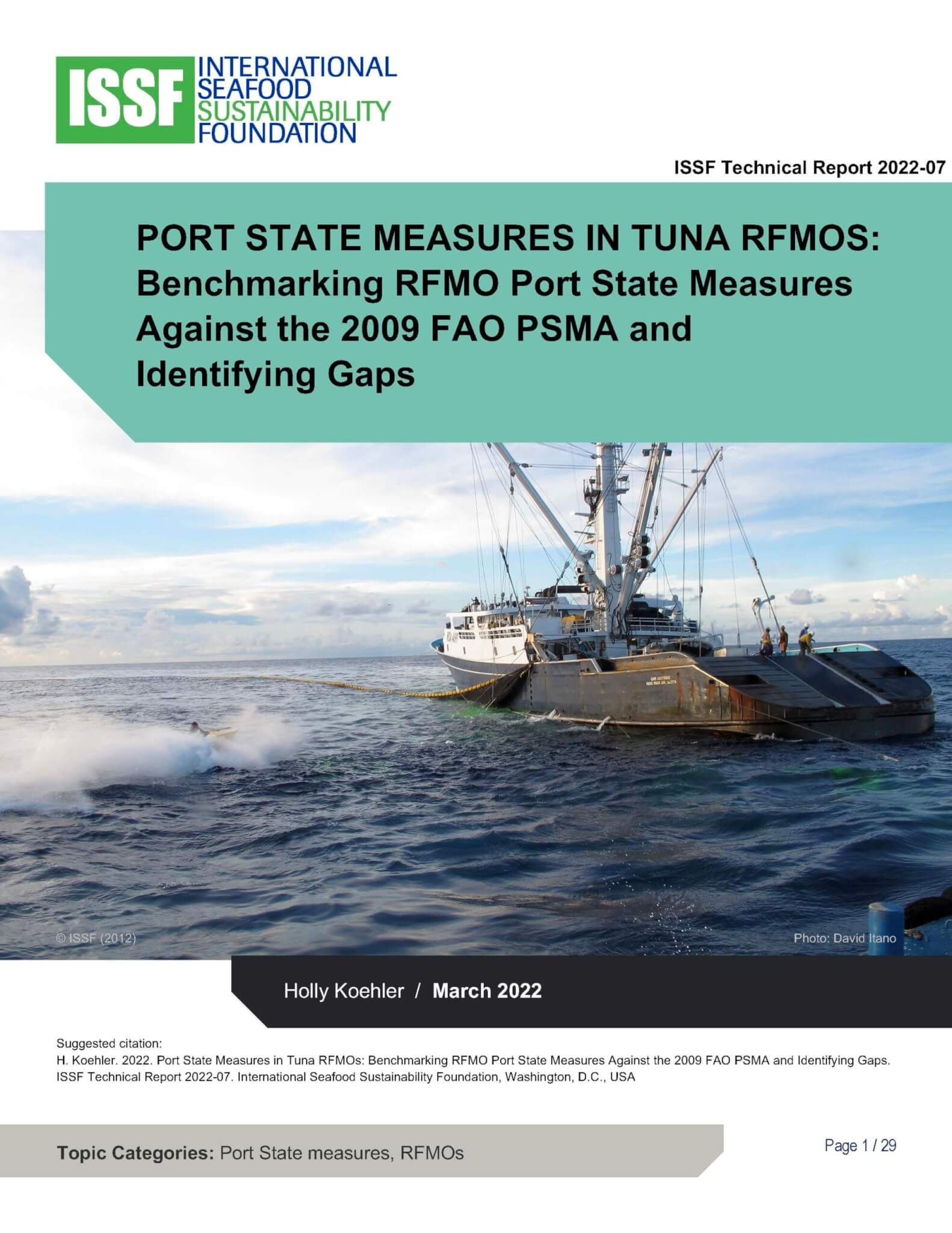Document: ISSF 2022-07: Port State Measures in Tuna RFMOs: Benchmarking RFMO Port State Measures Against the 2009 FAO PSMA and Identifying Gaps*
Note: The information in this report is current for 2023. The RFMOs have not made changes to port state measure requirements since the report was published in 2022.
The adoption and subsequent entry into force of the FAO Agreement on Port State Measures was a ground-breaking achievement for global efforts to combat illegal, unreported and unregulated (IUU) fishing activities and those that support such activities.
The Agreement established the framework for port States to, inter alia, seek specific information from foreign-flagged vessels seeking entry to ports under their jurisdiction, priorities for inspections of such vessels, when port entry and/or use should be denied and reporting and exchange of information among States and RFMOs.
A number of regional fisheries management organizations (RFMOs) have adopted regional port State measures that apply to those States that are members of the RFMO party to the RFMO treaty even if those States are not yet party to the PSMA.
In addition, the measures adopted by some RFMOs have established specific implementation requirements that the PSMA does not specify, such as minimum levels of inspection or timeframes from the submission of advance request to enter ports.
This report analyzes port State measures adopted by the five tuna RFMOs against the implementing principles and operating standards provisions of the PSMA. The results of the analysis identify several serious gaps in these existing tuna RFMO measures, including requirements for advance notice of port entry, denial of port entry or use, minimum inspections levels, minimum standards for training of inspectors and/or inspection reports, and the scope of the measures.
Table 1 in the report is available as a downloadable graphic.
- Best Practices ,
- CCSBT ,
- IATTC ,
- ICCAT ,
- IOTC ,
- Port State Measures ,
- RFMOs ,
- Tuna ,
- WCPFC
Downloads: 335 | Views: 0
